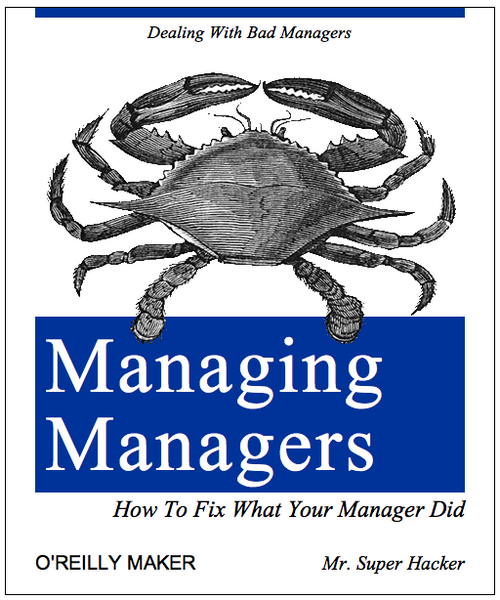
In the vast corporate landscape of Manageria, a realm where hierarchy and structure define the contours of professional life, there emerged a guide that would soon become the cornerstone of corporate lore: "Managing Managers: Dealing With Bad Managers | How To Fix What Your Manager Did." This tome, penned by the sage and seasoned leader Alex, sought to navigate the turbulent waters of supervising supervisors, a task as daunting as it was crucial to the health of the corporate ecosystem.
Alex, a veteran of countless managerial battles and a witness to the rise and fall of leaders, embarked on this endeavor not out of disdain for those in positions of power but out of a deep-seated belief in the transformative power of good leadership. The guide was born out of a series of encounters with managers who, though skilled in the art of ascending the corporate ladder, lacked the vision, empathy, and acumen necessary to inspire and guide their teams effectively.
"Dealing With Bad Managers" became a mantra for Alex, a rallying cry for those who found themselves in the unenviable position of managing up, of steering those who steered the ship. The guide laid bare the myriad challenges faced by those who navigate this complex dynamic: the micromanagers who stifled creativity and autonomy, the absentee leaders who left teams rudderless, and the tyrants whose reigns of fear and uncertainty sowed discord and dissatisfaction.
Yet, Alex's guide was not a diatribe against the flawed but a handbook for transformation. It offered strategies for communication that bridged the gap between misunderstanding and clarity, techniques for fostering an environment where feedback flowed freely and constructively, and pathways for empowering managers to grow from their missteps and embrace a leadership style that uplifted rather than undermined.
"How To Fix What Your Manager Did" was a testament to Alex's belief in redemption and growth. It recognized that behind every managerial misstep lay an opportunity for learning and improvement, that even the most troubled leaders could evolve with the right guidance and support. The guide emphasized the importance of empathy, patience, and strategic intervention, advocating for a culture where mistakes were seen not as failings but as stepping stones on the journey to effective leadership.
As "Managing Managers" spread throughout Manageria, it sparked conversations in boardrooms and break rooms alike, challenging entrenched notions of leadership and authority. It inspired a generation of leaders to look inward, to question not just the efficacy of their strategies but the impact of their leadership on the heart and soul of their teams.
The legacy of Alex's guide was a shift in the corporate paradigm, a movement away from hierarchical rigidity toward a more fluid, dynamic approach to leadership. "Dealing With Bad Managers | How To Fix What Your Manager Did" became a beacon for those navigating the complex interplay of managing managers, a reminder that true leadership was not about wielding power but about empowering others.
And so, in the annals of Manageria's history, "Managing Managers" stood as a monument to the enduring power of positive leadership, a guide that transcended the pages from which it sprang to become a lived philosophy for countless professionals. It was a testament to the belief that within every managerial challenge lies an opportunity for growth, for transformation, and for the kind of leadership that inspires not just productivity and success but fulfillment and purpose.